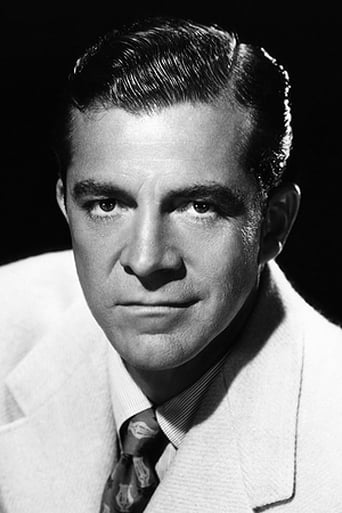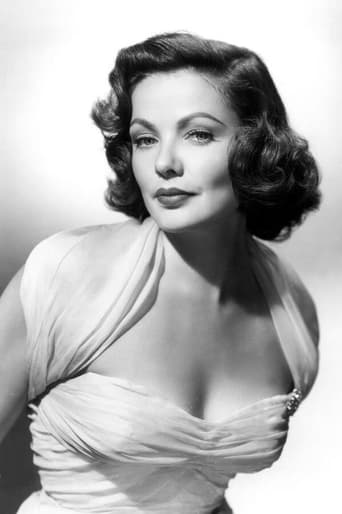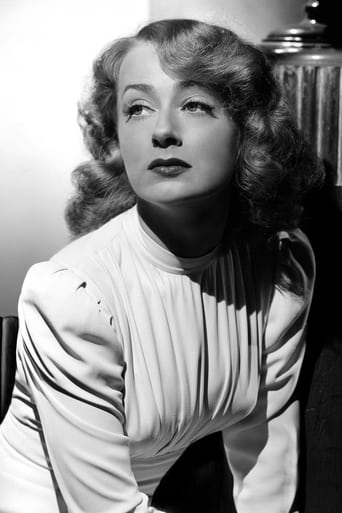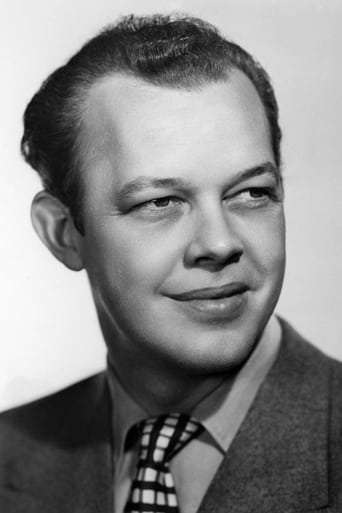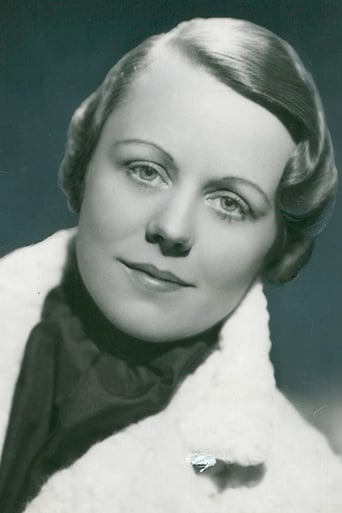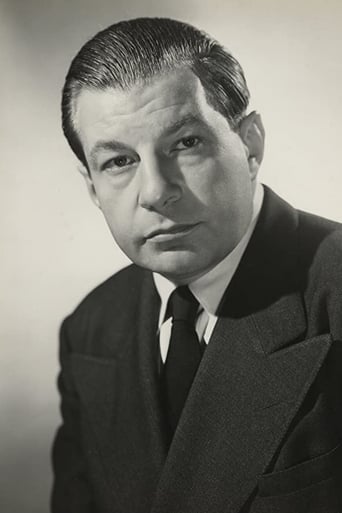Laikals
The greatest movie ever made..!
Livestonth
I am only giving this movie a 1 for the great cast, though I can't imagine what any of them were thinking. This movie was horrible
Robert Joyner
The plot isn't so bad, but the pace of storytelling is too slow which makes people bored. Certain moments are so obvious and unnecessary for the main plot. I would've fast-forwarded those moments if it was an online streaming. The ending looks like implying a sequel, not sure if this movie will get one
Allison Davies
The film never slows down or bores, plunging from one harrowing sequence to the next.
dougdoepke
Clearly, this was a TCF prestige production. Impresario Sol Siegel produced, auteur William Wellman directed, popular leads Andrews and Crain starred, while Canadian locations were as accurate as possible. Based on a true story of Soviet espionage, the framing lends genuine authenticity. Not too much exciting happens until the last 20-minutes, when defector Gouzenko tries to get skeptical Canadian authorities to believe his story. That must have been hair-raising, his life on the line.But make no mistake, the narrative is turned into propaganda, sometimes crude, sometimes slick. It's not a question of basic facts. Those I take to be true. Instead, it's a question of stagecraft, namely, how the facts are presented. In short, it's not the 'what' but the 'how'. Note how Soviet officials are presented by the movie makers. How they apparently hate full light— seemingly only to exist in noirish shadow; how they never smile, apparently having no inner feelings; how they only speak in a mechanical manner, apparently having no thoughts of their own; and how they apparently don't love their wives, Gouzenko's fidelity marking him as a potential defector. Indeed, this is Hollywood's attempt to turn on a dime, yesterday's ally becoming today's enemy. In short, TCF had to take up the Cold War too, of which this film was a key entry. Speaking of spying on allies, we might ask Germany's current chancellor Angela Merkel how she likes having her phones bugged by our own NSA. Understandably, it created quite a diplomatic stir (Google 'merkel and spying'). My point is not to defend the Soviets specifically. Rather, it is to point out an important part of cinematic propaganda. Namely, that it's not sufficient to present the basic facts, as some folks believe; it's also how those facts are presented, and here the manner is clearly propagandistic. Soviet stereotypes are created that would endure. My larger point is to beware of any effort to de-humanize an enemy no matter how detestable they may seem. For such an effort can also be turned around on us.
rsternesq
One has to wonder whether anyone cares what words mean. Hey folks, this is a true story told in a deliberately understated way to avoid sensationalizing the subject, which was plenty exciting enough. Anyone who thinks it is propaganda either doesn't know what the word means or doesn't realize what is really going on and has been going on for some several hundred years now. Simply stated, there are a very few places in this world where people have achieved a measure of freedom and relative comfort. That is the exception. The rest of the world is a place with far less comfort and freedom. In 1945 and in 2010 there are plenty of bad guys who would like to do harm and once in a while someone upsets their plan. That is a good thing and telling us about it is a good thing. It isn't propaganda. It is our history.
Neil Doyle
Fox was doing several spy documentaries in the '40s in the style of 13 RUE MADELEINE and THE HOUSE ON 92nd STREET, and this is one of their less melodramatic stories of espionage performed in low-key style by DANA ANDREWS and GENE TIERNEY.Andrews is Igor Gouzenko, a Russian who is part of a Canadian spy ring. He has a taste of freedom when he lives in Canada and decides to defect with his wife and young son, but not before taking classified documents with him which he intends to hand over to the authorities.Director William A. Wellman gets just a moderate amount of suspense out of the true life story, deciding not to go for melodramatics but having the whole story played out in low-key style befitting a documentary type of film. There's even some narration to frame the story.Andrews gives a decent performance, tight-lipped and determined to leave his Russian heritage behind and find freedom in Canada under the protection of the Royal Canadian police. Tierney gives one of her more sincere performances as the wife, concerned for the welfare of her child and his right to grow up under democracy's freedom.A bit too much propaganda but nicely photographed and played by a competent cast, including EDUARD FRANZ in a rather showier role. Lacks the dramatic power it might have had if a more melodramatic approach had been used.
newospar
This little cold war story tells the tale of an ordinary man caught up in the intrigue of the atomic spy scandal of the 1940's in Canada. Working as a code clerk in the Soviet embassy in Canada Igor Gouzenko learns that atomic secrets are being forwarded to Stalin through his office. The problem for the Soviet Union is that while in Canada Gouzenko begins to realize that the government he works for and fought for is more of a threat to its people than a protector. He also realizes that the Canadians around him are decent people and no threat to his people. Then the action begins, he steals copies of the information being stolen and tries to go to the Canadian Government and press and gets nowhere. Finally, when the NKVD police from the embassy show up at his apartment and they cause such a ruckus the neighbors call the local Canadian Police the nature of the documents are revealed. One of those immortal lines is uttered by the Cop when told the papers are property of the Soviet Union;"All Stolen Property must be Identified at the Police Station". This is followed by a look by the Cop equivilent to "Go ahead,Make my day". Some might try to say this film is an anachronism and too "hawkish" but the facts are true and the fall of the Soviet Union has backed it up. The acting is by a group of "journeymen and women",the direction is as simple as that of "The Longest Day",to tell an incredible tale that no fiction writer could dream up.
